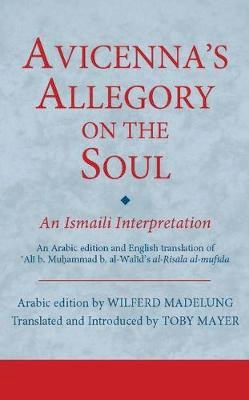The Persian philosopher Ibn Sina (d. 1037), known in Europe as Avicenna, was arguably the greatest master of Aristotelian thought in the Muslim world. The symbolical ‘Poem on the Soul’ (Qaṣīdat al-nafs), which portrays all earthly human souls as in temporary exile from heaven, is traditionally attributed to him. Renowned for his encyclopaedic treatments of philosophy, Avicenna also experimented with a variety of intellectual genres and discourse styles, including a small number of mythopoeic texts. Among those, the brief Qaṣīda drew the particular attention of commentators on account of its aesthetic impact, popularity and the ostensibly esoteric character of its teachings. It depicts the human soul as a strayed dove, which can only return home after retrieving awareness of its celestial origin. The text therefore expresses metaphorically the need for a philosophical perspective in life and for philosophy as a path to salvation.
One of the most important commentaries on the Qaṣīda was written by ʿAlī b. Muḥammad b. al-Walīd (d. 1215), a major early representative of the Tayyibi Ismaili tradition, which emerged and flourished in medieval Yemen. In his view, the poem encapsulated the highly distinctive and esoteric beliefs of his own school. At the heart of this system lies a cosmological myth, aptly named the ‘drama in heaven’, according to which our imperfect universe results from a rupture in the celestial world and a subsequent fall. Avicenna’s Allegory on the Soul presents an edition of the Arabic text of Ibn al-Walīd’s commentary, ‘The Useful Epistle’ (al-Risāla al-mufīda), alongside an English translation and extended introduction. It offers invaluable insight into esoteric Muslim thought and a deeper understanding of Avicenna’s substantial intellectual legacy.
Introduction
Avicennan Allegory: Between Philosophy and Religion
Ibn Sīnā’s Symbolic Narratives
The Risālat al-ṭayr
Ḥayy ibn Yaqẓān
Salāmān wa Absāl
The Miʿrāj-nāma
The Qaṣīdat al-nafs (Poem on the Soul)
The Puzzle of the Qaṣīda’s Neoplatonic Psychology
ʿAlī b. Muḥammad b. al-Walīd and his Historical Context
Note on Ibn al-Walīd’s Critique of al-Ghazālī
Content of Ibn al-Walīd’s al-Risāla al-mufīda
Synopsis of Ibn al-Walīd’s Glosses
Acknowledgements
Note on the Arabic Edition
Al-Risāla al-mufīda (English translation)
Select Bibliography
Index
Al-Risāla al-mufīda (Arabic edition)
Professor Wilferd Madelung is a leading contemporary Islamicist, who has made significant contributions to scholarship on medieval Islamic communities and movements, including those of the Twelver, Ismaili and Zaydi Shi’is. He was previously the Laudian Professor of Arabic at the University of Oxford. He is currently a Senior Research Fellow at The Institute of Ismaili Studies. His publications include The Succession to Muḥammad: A Study of the Early Caliphate (1997).
Dr Toby Mayer is a Research Associate in the Qur’anic Studies Unit at The Institute of Ismaili Studies, London. He has taught courses on medieval Muslim philosophy and mysticism at the School of Oriental and African Studies (SOAS), University of London, and at the Institute of Ismaili Studies. In addition to having authored numerous articles on Islamic philosophy, scriptural hermeneutics and mysticism, he is co-author (with W. Madelung) of Struggling with the Philosopher: A Refutation of Avicenna’s Metaphysics (2001), and translator of Keys to the Arcana: Shahrastānī’s Commentary on the Qur’an(also Koran. Arabic term meaning, ‘recitation’ or ‘scripture’): Muslims believe that the Holy Qur’an contains divine revelations to the Prophet Muhammed received in Mecca and Medina over a period of… More (2009).

